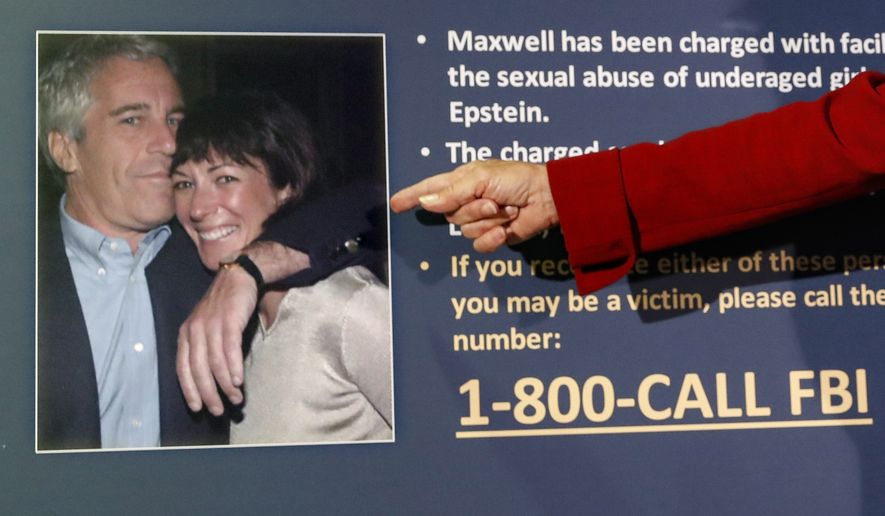The head of the Bureau of Prisons told a Senate panel Thursday the security failures that led to the apparent suicide of billionaire sex offender Jeffrey Epstein while in custody on sex trafficking charges have created a public crisis of trust for the embattled agency.
In testimony before the Senate Judiciary Committee, BOP Director Michael Carvajal acknowledged the questions surrounding Epstein’s death have hurt the agency’s standing in the public view, but he also refused to shed new light on the incident.
When asked by Sen. Ben Sasse, Nebraska Republican, if he could think of any case that led to more distrust of the BOP than the Epstein case, Mr. Carvajal said he couldn’t think of one.
But Mr. Carvajal also declined to answer questions about Epstein’s death, citing two upcoming criminal trials and an investigation by the Justice Department’s inspector general. The inspector general probe is currently on hold so it doesn’t impact either criminal case.
That didn’t satisfy Mr. Sasse, who scolded the official for ducking his questions.
“After a year-and-a-half, you have nothing publicly to say to the taxpayers or the victims?” Mr. Sasse asked.
“I can’t discuss it because it is still under investigation,” Mr. Carvajal said. “I don’t control the investigation.”
Epstein, 66, died in a Manhattan federal jail in August 2019 from what authorities ruled was a suicide. At the time of his death, Epstein was being held without bail on child sex-trafficking charges.
A one-time friend of former Presidents Bill Clinton and Donald Trump, Epstein had previously pleaded guilty to state prostitution charges in Florida that included paying a minor for sexual services.
The two former Manhattan guards accused of falsifying records to cover up their failure to monitor Epstein on the night he died are scheduled to go to trial this summer.
Epstein’s alleged co-conspirator Ghislaine Maxwell is also set for trial in July on sex-trafficking charges.
Mr. Sasse demanded to know why special attention wasn’t paid to Epstein, given that his case had generated so much interest.
“We apply the appropriate amount of security,” Mr. Carvajal said. “They are all special cases, without getting into specifics, which I don’t think is appropriate to do.”
Mr. Sasse seemed unimpressed.
“It is the most basic duty of the Bureau of Prisons to keep prisoners alive,” he said.
• Jeff Mordock can be reached at jmordock@washingtontimes.com.




Please read our comment policy before commenting.